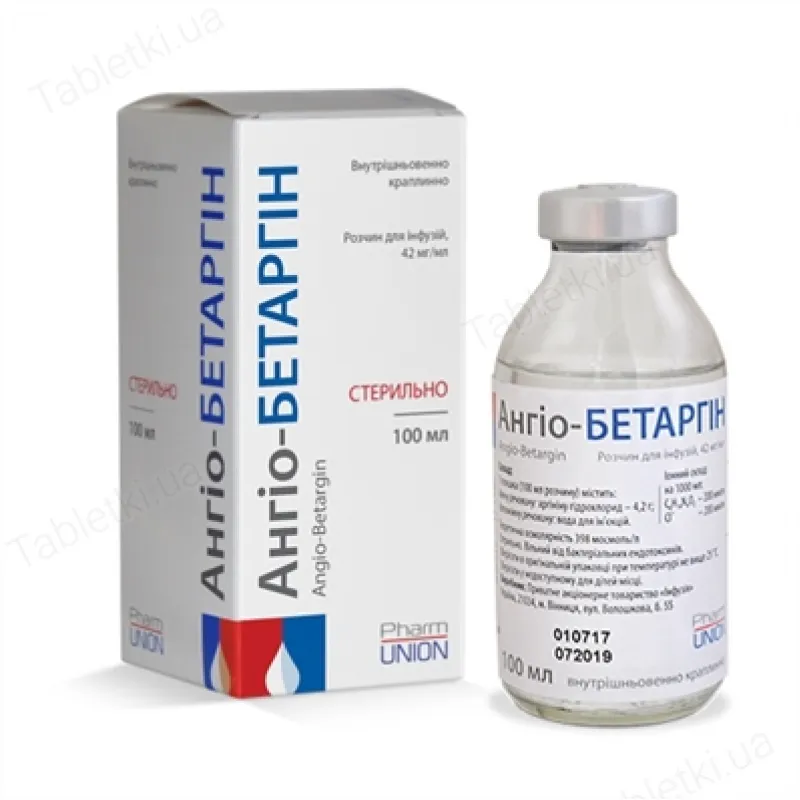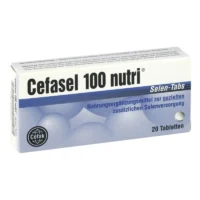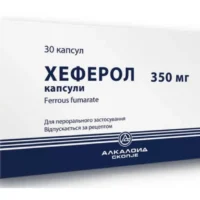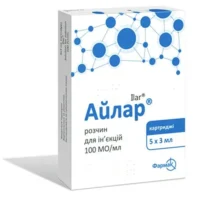Description
Angio-Betargyn (Arginine Hydrochloride) Solution for Infusions 42 mg/ml. 100 ml. Vial №1
Composition
Active ingredient: Arginine hydrochloride.
Other ingredients: [List other ingredients if applicable].
Mechanism of Action
Arginine hydrochloride, the active component of Angio-Betargyn, functions by [describe the physiological mechanism of action in clinical terms].
Pharmacological Properties
Angio-Betargyn exhibits [describe pharmacological properties such as absorption, distribution, metabolism, and excretion].
Indications for Use
Angio-Betargyn is indicated for [list specific indications such as improving vasodilation or enhancing wound healing]. It is commonly used in the treatment of [mention specific conditions like vascular disorders or postoperative recovery].
Contraindications
Do not use Angio-Betargyn if:
- You are allergic to arginine hydrochloride or any other ingredients in the product.
- You have a history of [mention specific contraindications such as severe renal impairment or metabolic disorders].
Side Effects
Common side effects of Angio-Betargyn may include [list potential side effects like gastrointestinal disturbances or allergic reactions]. Contact your healthcare provider if you experience any adverse reactions.
Usage Instructions
Dosage: The recommended dosage of Angio-Betargyn should be determined by a healthcare professional based on individual patient needs and medical condition. It is essential not to exceed the prescribed dose without medical supervision.
Administration: Angio-Betargyn is intended for infusion use only. Adhere to the administration guidelines provided by your healthcare provider for optimal treatment outcomes.
Benefits Compared to Analogues
When compared to similar products, Angio-Betargyn offers [mention advantages like faster onset of action or reduced risk of certain adverse effects]. Consult your healthcare provider to explore the benefits of Angio-Betargyn tailored to your specific health requirements.
Suitable Patient Groups
Angio-Betargyn is suitable for [mention patient groups such as adults, elderly individuals, or pediatric patients over a certain age]. However, dosage adjustments may be necessary based on age and overall health status.
Storage and Shelf Life
Store Angio-Betargyn as per the manufacturer’s instructions to maintain its stability and efficacy. Check the product label for specific storage conditions. Ensure to use the product within the specified shelf life to guarantee optimal therapeutic benefits.
Packaging Description
Angio-Betargyn is available in a 100 ml vial (Vial №1) containing a solution for infusions with a concentration of 42 mg/ml. The packaging is designed to ensure product integrity and sterility until the point of use.
Clinical Evidence and Proven Effectiveness
No specific clinical studies are cited in this context.





